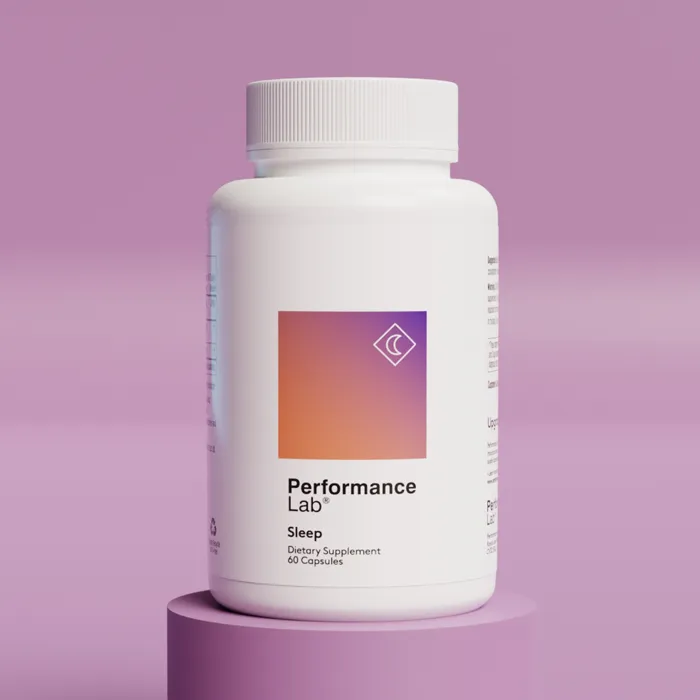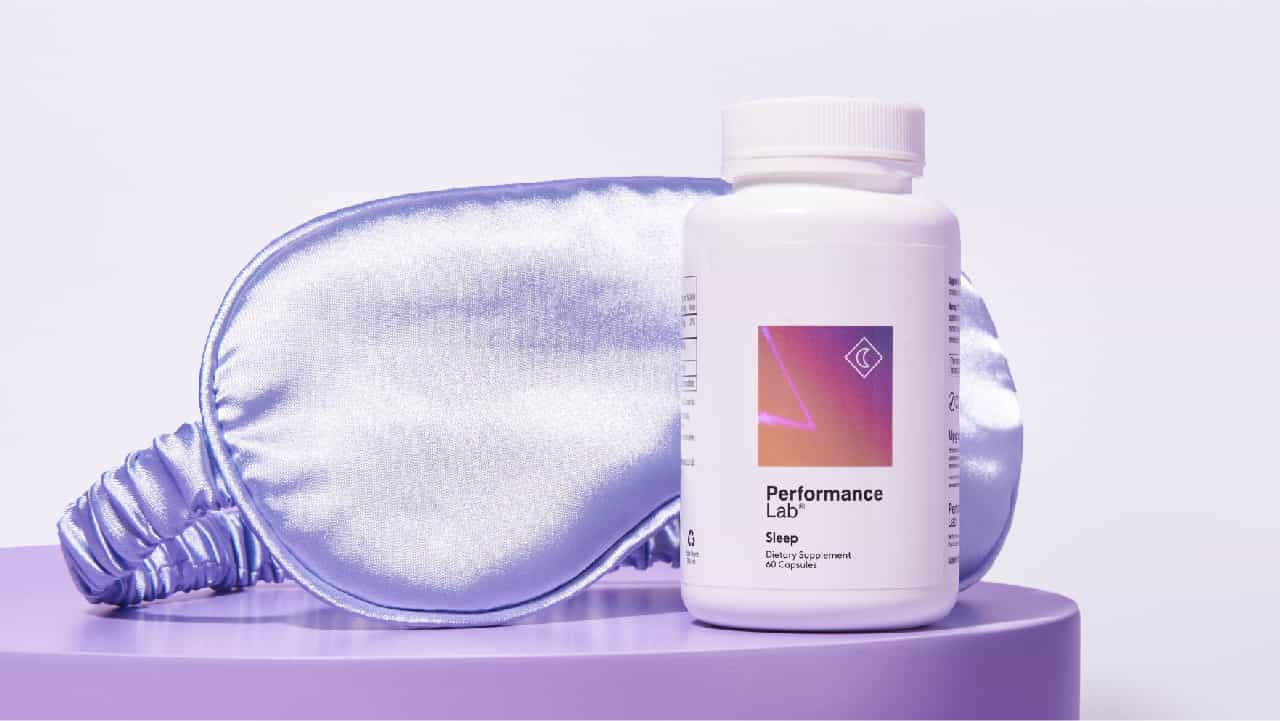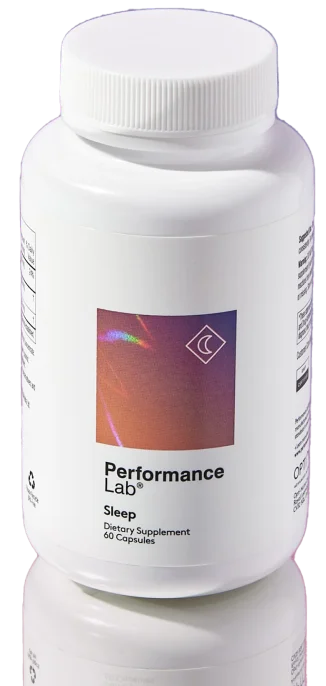More than a third of Americans are not getting enough sleep, with a tenth of the adult population suffering from chronic insomnia. (23) That's a fact, and it shouldn't be ignored. Sleep deprivation is particularly prevalent in older adults, aged from 45 to 64, says the CDC. (1)
Key Takeaways
- Certain cherries, especially tart varieties, naturally contain melatonin and other compounds that can support sleep.
- Studies suggest tart cherry juice may help some people fall asleep faster, sleep longer, and experience better sleep quality.
- The benefits likely come from a mix of melatonin, antioxidants, and anti inflammatory polyphenols rather than melatonin alone.
- Cherries can be a gentle addition to a bedtime routine but will not fix serious sleep issues on their own.
- Combining cherry rich foods with good sleep hygiene and targeted supplements can create a more complete sleep support plan.

It's no surprise then that many of us are turning to natural sleep aids like cherries, but do they really work? Do cherries have natural melatonin that can help us to sleep better? Or is too good to be true?
Let's ask the question...
Do Cherries Contain Natural Melatonin?
So, do cherries have melatonin? Yes, it's not a myth - cherries contain natural melatonin, also known as the 'sleep hormone'. Cherries have been shown to increase melatonin levels in our system, which may help encourage sleep.
How do Melatonin Levels Influence Sleep?

Let's take a quick and easy dive into the science.
Melatonin production occurs in the pineal gland in the brain. The hormone is secreted when it starts to get dark and rises at night, kickstarting numerous changes in the body. These changes to mood, body temperature, blood pressure, and more help us feel tired - a chemical reminder to go to bed, if you will.
The levels then fall again during daylight hours, helping us to wake naturally. As such, melatonin is a crucial stage in our sleep-wake cycle, also known as our circadian rhythm. (2)
Of course, many things can influence or interrupt our sleep-wake cycle, especially nowadays as we've become so addicted to technology.
Blue light from phones, artificial light, our insistence on watching just one more episode... how often do we ignore the urge to fall asleep? Not to mention shift work, jet lag and more. Melatonin levels can also fall with age. (3)
Given all that, having an easy way to boost our melatonin levels can only help.
Are All Cherries High in Melatonin?

There are over a thousand varieties of cherries grown in the world, but they can be boiled down into two types: sweet and sour.
-
Sweet cherries are typically dark red or black(Lambert, Chelan, Bing), or pink and yellow (Royal Ann and Rainier).
-
Sour cherries are usually bright red (Montmorency, Morello, Balaton) and, as the name implies, have a sour or slightly bitter taste. They are often referred to as tart cherries.
So, which type of cherries are high in melatonin?
That would be tart cherries. Tart cherries - the bright red cherries with a sour taste - contain up to 50 times more melatonin than their sweet counterparts. (4)
Of those, Montmorency cherries are known to have the most melatonin, having up to six times the amount of other forms of tart cherries, such as Balaton. (5)
Tart cherries also contain more tryptophan than sweet cherries, an amino acid that helps the body produce more melatonin. (6) Bonus!
How Much Melatonin Do Cherries Have?
Here's where it gets tricky. You want to know how much melatonin cherries have, don't you? A sensible question, but difficult to answer.
You see, the melatonin content in cherries depends on the type, the batch, where they were grown, how they were harvested, what form they were supplied in, and more!
However, one study determined that Montmorency cherries contain about 13ng of melatonin per single gram of cherry. (7)
If you think that doesn't sound like a lot, you may want to know that many researchers theorise that tart cherries' impact on sleep goes beyond their melatonin content.
They suggest that the tryptophan in the fruit (approximately 9mg per 100g of tart cherries) strengthens its sleep effects. (9) After all, tryptophan encourages the body to make even more melatonin and serotonin, the 'feel good' hormone.
Indeed, following a meta-analysis of more than 250 scientific records, researchers concluded: "Tart cherry may be the next frontier of sleep medicine and warrants further research." (8)
How Many Cherries Should You Eat for Better Sleep?

How many cherries should you eat if you crave a better night's sleep? Unfortunately, there's no official consensus on how many cherries should be effective for sleep.
Clinical trials featuring tart cherries typically use 30ml of concentrated tart cherry juice beverage, which equates to around 90-100 cherries. However, if you ate that amount of cherries every day, you'd likely suffer from digestive problems, such as indigestion, bowel problems and more, so we don't recommend that. (10)
Melatonin also affects people differently, and adults can have different tolerances, so there is no one-size-fits-all approach.
Experts recommend starting small - with half a cup of fresh or frozen cherries at a time, or adding tart cherry juice 120ml (4oz) to your diet an hour before bedtime. (11)
If you feel you're ready for more, you can slowly increase your dose. Alternatively, a quality tart cherry supplement may take the worry out of dosages.
Do Cherries Actually Help You Sleep?

According to many people who swear by them - and several scientific studies - yes, cherries can actually help you to feel sleepy and to sleep better. There's a growing body of clinical research that seems to back up anecdotal evidence, and more research and pilot studies all the time.
For instance, cherries have been shown to help improve sleep efficiency (the amount of time you spend asleep while in bed) and overall sleep time. Cherries can help all ages enjoy better sleep, but may be especially potent for middle-aged and older adults.
One study of volunteers with insomnia discovered that they slept for 84 minutes longer after taking cherry juice than those who didn't take it. (12)
Again, most studies focused on tart cherries as the superior form of cherries for nutrition and sleep.
Are Cherries a Good Bedtime Snack?
Most experts recommend eating the fruit one hour before bedtime to give the melatonin a chance to work.
How Do Cherries Compare to Other Melatonin-Rich Fruits?

Bananas, cranberries, strawberries, kiwis, goji berries and grapes also contain melatonin or tryptophan, which should help your sleep health. However, it is widely recognised that tart cherries - especially Montmorency cherries - are one of the fruits with the highest melatonin levels. (13)
Other Health Benefits of Eating Cherries
Cherries are a great source of nutrition, packed full of vitamins, minerals, fiber, antioxidants and anti-inflammatories.
Sleep aside, they bring other health benefits such as potentially helping to:
-
Reduce inflammation, easing joint stiffness (14)
-
Act as a preventative anti-inflammatory (15)
-
Encourage faster recovery after exercise and reduce muscle soreness if taken consistently in the days before exercise (16)
-
Lower blood pressure (17)
-
Strengthen the immune system, thanks to anthocyanins which may help the body fight pathogens (18)
-
Lessen risk factors related to heart disease or cardiovascular disease (20)
-
Support memory in people experiencing age-related cognitive decline (21)
How do Tart Cherries Compare to Melatonin Supplements?

When researching sleep aids, you'll likely come across adverts for melatonin dietary supplements. Synthetic versions of the hormone may help you catch a few more Zzzs, but can leave you drowsy in the morning.
Many synthetic melatonin supplements also include high doses of melatonin, which your body just doesn't need. Experts recommend taking just 0.3mg of melatonin to begin with, roughly the same dose as that produced naturally in the body by the pineal gland. (22)
You should also be aware of possible interactions with other medications.
Opting for natural options such as tart cherries or tart cherry juice, or dietary supplements that include natural sources of melatonin content, may be a safer choice.
Best Natural Tart Cherry Supplement

Performance Lab Sleep contains Montmorency tart cherries to deliver a natural source of melatonin, alongside tryptophan to enhance your serotonin and melatonin levels naturally.
Combined with lemon balm for relaxation and magnesium to relax nerves and muscles, it helps to prepare you for a better night's sleep.


Maximizing the Effects of Cherries for a Better Night's Sleep

Help to strengthen the potentially sleep-enhancing benefits of tart cherries by adding these simple steps to your daily routine:
-
Avoid screen time and electronic devices before bed
-
Avoid caffeine 6-8 hours before bed, and alcohol 3 hours before bed (24)
-
Create a relaxing bedtime routine, consuming tart cherry juice one hour before sleep or taking a tart cherry dietary supplement
-
Get regular exercise and practice stress-reduction techniques to improve sleep quality and overall health.
-
Eat a balanced diet that includes cherries and other nutrient-dense foods to support overall health and well-being.
Final Thoughts
Tart cherries are one of the healthiest fruits around and, helpfully, are also a great source of melatonin and tryptophan to boot. If you're struggling to get enough regular, quality sleep or suffer from insomnia, it's worth adding tart cherries or tart cherry juice to your evening ritual - just be careful to avoid drinks with added sugar.
Alternatively, choosing a quality Montmorency tart supplement like Performance Lab Sleep can make it even easier to gain a solid dose of sleep hormone and avoid the sugar found in cherries.
References
- Centers for Disease Control and Prevention (CDC). Adults Sleep. Accessed May 12, 2025. Available at: https://www.cdc.gov/sleep/data-research/facts-stats/adults-sleep-facts-and-stats.html
- Cleveland Clinic. (2025, April 28). Melatonin: What It Is, What It Does & How It Works. Cleveland Clinic. https://my.clevelandclinic.org/health/articles/23411-melatonin
- WebMD. Foods High in Melatonin. Accessed May 12, 2025. Available at: https://www.webmd.com/diet/foods-high-in-melatonin
- NutritionFacts. Foods with Natural Melatonin. Accessed May 12, 2025. Available at: https://nutritionfacts.org/blog/foods-with-natural-melatonin/
- Burkhardt, Susanne & Tan, Du-Xian & Manchester, Lucien & Hardeland, Rüdiger & Reiter, Russel. (2001). Detection and Quantification of the Antioxidant Melatonin in Montmorency and Balaton Tart Cherries ( Prunus cerasus ). Journal of agricultural and food chemistry. 49. 4898-902. 10.1021/jf010321+. Via research gate: https://www.researchgate.net/publication/11750425_Detection_and_Quantificatio
- Sleep Foundation. (n.d.). Sleep Benefits of Tart Cherry Juice. Retrieved May 15, 2025, from https://www.sleepfoundation.org/nutrition/tart-cherry-juice#
- Burkhardt S, Tan DX, Manchester LC, Hardeland R, Reiter RJ. Detection and quantification of the antioxidant melatonin in Montmorency and Balaton tart cherries (Prunus cerasus). J Agric Food Chem. 2001;49(10):4898-4902. https://pubmed.ncbi.nlm.nih.gov/11600041/
- Stretton, Brandon & Eranki, Aditya & Kovoor, Joshua & Bacchi, Stephen & Gupta, Aashray & Maddern, Guy & Boyd, Mark. (2023). Too Sour to be True? Tart Cherries (Prunus cerasus) and Sleep: a Systematic Review and Meta-analysis. Current Sleep Medicine Reports. 9. 1-9. 10.1007/s40675-023-00261-w. https://www.researchgate.net/publication/372285864_Too_Sour_to_be_True_Tart_Cherries_Prunus_cerasus_and_Sleep_a_Systematic_Review_and_Meta-analysis
- Losso, J. N., Finley, J. W., Karki, N., Liu, A. G., Prudente, A., Tipton, R., Yu, Y., & Greenway, F. L. (2018). Pilot study of the tart cherry juice for the treatment of insomnia and investigation of mechanisms. American Journal Of Therapeutics, 25(2), e194–e201
- Verywell Health. What Happens to Your Body When You Eat Cherries Regularly. Accessed May 12, 2025. Available at: https://www.verywellhealth.com/what-happens-to-your-body-when-you-eat-cherries-regularly-8771301
- Czerwony, B. (2021, November 18). Can Cherries Help You Get a Better Night’s Sleep? Cleveland Clinic. https://health.clevelandclinic.org/do-cherries-help-you-sleep
- Stretton, Brandon & Eranki, Aditya & Kovoor, Joshua & Bacchi, Stephen & Gupta, Aashray & Maddern, Guy & Boyd, Mark. (2023). Too Sour to be True? Tart Cherries (Prunus cerasus) and Sleep: a Systematic Review and Meta-analysis. Current Sleep Medicine Reports. 9. 1-9. 10.1007/s40675-023-00261-w. https://www.researchgate.net/publication/372285864_Too_Sour_to_be_True_Tart_Cherries_Prunus_cerasus_and_Sleep_a_Systematic_Review_and_Meta-analysis
- Meng, X., Li, Y., Li, S., Zhou, Y., Gan, R.-Y., Xu, D.-P., & Li, H.-B. (2017). Dietary sources and bioactivities of melatonin. Nutrients, 9(4), 367. https://pmc.ncbi.nlm.nih.gov/articles/PMC5409706/#sec2-nutrients-09-00367
- Du C, Chapman SC, Kwon YH, Vijayagopal P, Juma S. Impact of Tart Cherry Juice on Joint Flexibility and Pain in Individuals with Self-Reported Knee Osteoarthritis (P01-030-19). Curr Dev Nutr. 2019 Jun 13;3(Suppl 1):nzz028.P01-030-19. doi: 10.1093/cdn/nzz028.P01-030-19. PMCID: PMC6574019. PubMed Central (PMC). Accessed May 12, 2025. Available at: https://pmc.ncbi.nlm.nih.gov/articles/PMC6574019/
- Mostafa Norouzzadeh, Minoo Hasan Rashedi, Hossein Shahinfar, Seyedeh Tayebeh Rahideh. Dose-dependent effect of tart cherry on blood pressure and selected inflammation biomarkers: A GRADE-assessed systematic review and meta-analysis of randomized controlled trials, Heliyon, Volume 9, Issue 9,
2023, Accessed May 12, 2025. Available at: https://www.sciencedirect.com/science/article/pii/S2405844023071955 - McHugh MP. "Precovery" versus recovery: Understanding the role of cherry juice in exercise recovery. Scand J Med Sci Sports. 2022 Jun;32(6):940-950. doi: 10.1111/sms.14141. Epub 2022 Feb 14. PMID: 35119142; PMCID: PMC9306613. PubMed Central (PMC). Accessed May 12, 2025. Available at: https://pmc.ncbi.nlm.nih.gov/articles/PMC9306613/#sms14141-sec-0020
- Kelley, D. S., Adkins, Y., & Laugero, K. D. (2018). A review of the health benefits of cherries. Nutrients, 10(3), 368. https://www.mdpi.com/2072-6643/10/3/368
- Healthline. Ways Cherry Juice Benefits You. Accessed May 12, 2025. Available at: https://www.healthline.com/health/food-nutrition/ways-cherry-juice-benefits-you#immunity
- American Institute for Cancer Research (AICR). Food Facts - Cherries. Accessed May 12, 2025. Available at: https://www.aicr.org/cancer-prevention/food-facts/cherries/
- Cleveland Clinic. Benefits of Cherries. Accessed May 12, 2025. Available at: https://health.clevelandclinic.org/benefits-of-cherries
- Kent, K., Charlton, K., Roodenrys, S., Batterham, M., Potter, J., Traynor, V., Gilbert, H., Morgan, O., & Richards, R. (2017). Consumption of anthocyanin-rich cherry juice for 12 weeks improves memory and cognition in older adults with mild-to-moderate dementia. European Journal of Nutrition, 56(1), 333–341. Retrieved May 6, 2025, from https://pubmed.ncbi.nlm.nih.gov/26482148/
- Mount Sinai Health System. (n.d.). Melatonin. Mount Sinai. Retrieved May 6, 2025, from https://www.mountsinai.org/health-library/supplement/melatonin
- Czerwony, B. (2021, November 18). Can Cherries Help You Get a Better Night’s Sleep? Cleveland Clinic. https://health.clevelandclinic.org/do-cherries-help-you-sleep
- Conroy, D. (2020, December 16). When to stop drinking alcohol, water or caffeine before bed for better sleep. University of Michigan Department of Psychiatry. https://medicine.umich.edu/dept/psychiatry/news/archive/202012/when-stop-drinking-alcohol-water-or-caffeine-bed-better-sleep















